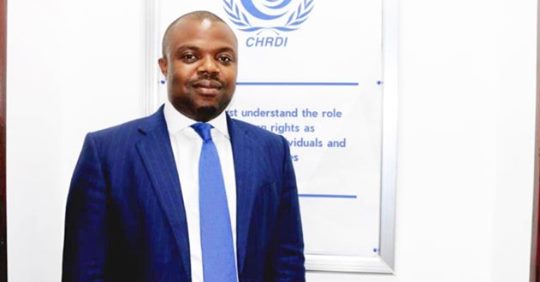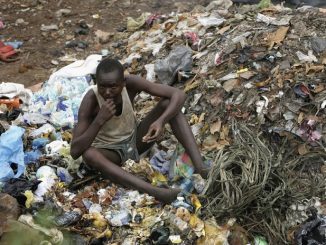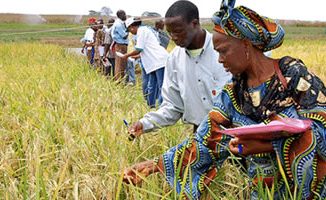
PRESS RELEASE
WORKERS IN THE FINANCIAL SECTOR ARE SUBJECTED HUMAN RIGHTS ABUSES AND EXPLOITATION
Many of the problems faced by workers in Sierra Leone are procedurally unfair and illegal but the authorities remain apathetic in the face of the problem. Many workers in the country do not have their employment rights upheld. They may be bullied or discriminated against by supervisors or managers, experience problems obtaining their pay, have excessive workloads, and are not treated with dignity or respect.
Human rights are universal. This means that every person around the world, including Sierra Leone, deserves to be treated with dignity and their interests given equal consideration. While governments have the duty to protect individuals against human rights abuses, businesses are increasingly expected to perform their own moral, legal, and commercial responsibility. The OECD Guidelines for Multinational Enterprises and the UN Guiding Principles for Business and Human Rights form the basis for what businesses should adhere to.
On the one hand, businesses can hinder human rights, as evidenced by reports around the world of unsafe working conditions, migrant worker exploitation, and harm done to communities. On the other hand, businesses can help advance human rights by offering access to decent work, creating higher living standards, protecting children’s rights and procuring goods in a responsible manner.
The 1991 constitution OF Sierra Leone enshrines the freedom of association, health and safety at work, fair working conditions, equal pay for equal work and fair compensation. Unfortunately, many of the important laws regulating the labour market in Sierra Leone date back to 1960s and are totally irrelevant to the present context.
We at Campaign for Human Rights and Development International (CHRDI ) have researched all the above mentioned issues in detail and are asking that the government of Sierra Leone ensures that workers are not subjected to practices that border on modern day slave-like conditions. CHRDI believes that many conflicts are sparked by a failure to protect human rights, and the trauma that results from severe human rights violations often leads to new human rights violations.
According to our findings, local and foreign banks operating in Sierra Leone have blacklisted over 400 bank workers, and over 500 are subject to poor working conditions. Among the violations documented in our report is the practice of forcing workers into working long hours without any over-time payment. Many bank workers in Sierra Leone report for work at 7am and work till 11pm daily, from Monday to Friday without any consideration of their work-life balance from their employers.
Cases of discrimination against female workers who get pregnant and related sexual harassment at the workplace were two key concerns for female workers in Sierra Leone that were expressed to us.
Discrimination against pregnant female workers takes different forms at different stages of the employment process, including during hiring, promotion, and dismissal, and coupled with failure to provide appropriate workplace conditions to address the needs of pregnant female workers.
Unfortunately, most financial institutions, especially commercial banks operating in Sierra Leone currently, lack adequate and effective investment policies to address the harmful business practices of their corporate clients and staff. Even the self-proclaimed ‘progressive’ banks can and do take full advantage of our weak laws to stifle freedom of association, individual growth, rightful benefits and work-life balance.
Banks are also in the habit of disrespecting the employment laws. For example, it is required by law that they are allowed to bring in 3 Expatriates but all of the foreign owned banks employ more than 5 foreigners without going through due process.
We believe that lack of accountability, coupled with the failure of the Central Bank and the Labor inspectorate to enforce compliance with applicable labor laws and regulations for poor working conditions in the Financial Sector is at the center of troubled industrial relations in Sierra Leone.
This lack of accountability only encourages Financial Institution(s) in Sierra Leone to continue to recklessly contribute to unsustainable business practices and human rights violations in the interest of turning a profit.
This report demonstrates the urgent need for binding regulations that address human rights issues; it further calls on political decision makers and Financial Institutions to install and implement transparent policies and regulations that secure human rights.
We at CHRDI are aware that Sierra Leone like many other African countries is taking steps to becoming self-sufficient by creating economically viable entities and ensuring there are attractive, investor-friendly policies, which will not be detrimental to indigenous workers. Nevertheless, there has been a spike in reports about workplace violations, like physical abuse committed by foreign investors on local and government employees. Sadly, there are always many more unemployed laborers waiting at the front gates of these foreign firms, begging for jobs.
We are also aware that The United Nations Guiding Principles are not, in themselves, legal requirements on businesses. However, in some of these areas, the standards expected of businesses have also been translated into domestic legislation that is legally binding on all business.
In view of all of the above, CHRDI is calling on the Government of Sierra Leone, international agencies such as the ILO and UN-Human Rights to include and prioritise the removal of all forms of human right abuses at the workplace in their programmes, in order to end abuse at all levels of employment in Sierra Leone.
Note: Campaign for Human Rights and Development International (CHRDI ) is a Rights based Public social-policy advocacy Organisation. We Draw attention to the responsibility of duty-bearers to uphold human rights, and seek to support rights-holders to claim their rights. CHRDI is in Special Consultative Status to the United Nations Economic and Social Council and accredited to many UN Agencies.
14-05-2019 ©️CHRDI-HUMAN RIGHTS and POLICY BRIEF



